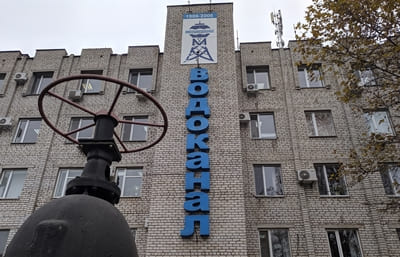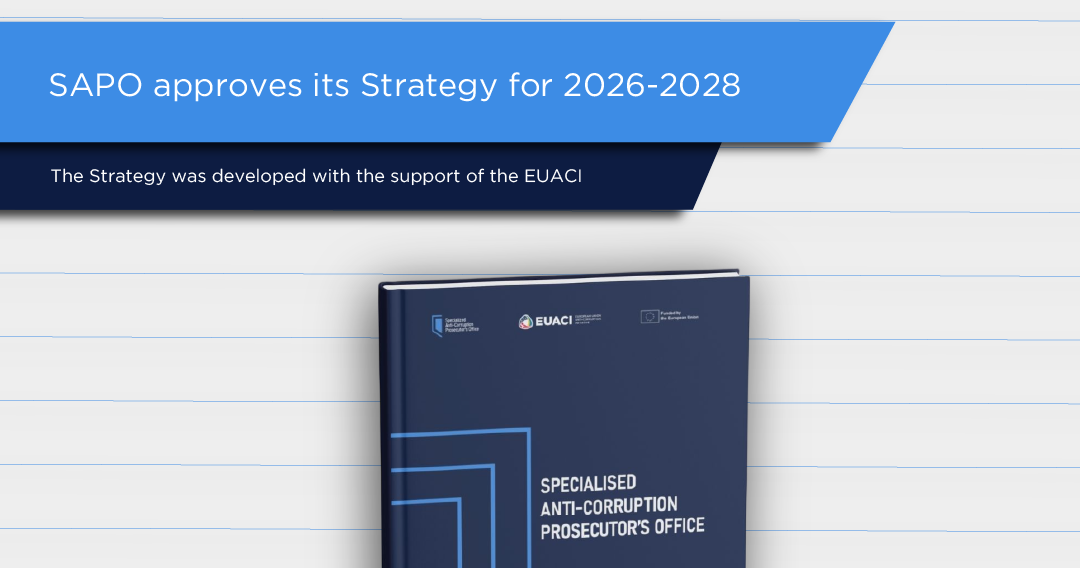On 6 March, the Diplomatic Academy of Ukraine (Kyiv) hosted a presentation and public discussion of the independent analytical study “Are Ukraine’s Anti-Corruption Reforms Working?” conducted by the Royal Institute of International Affairs Chatham House (London) commissioned by the EU Anti-corruption Initiative in Ukraine (EUACI).
John Lough (Chatham House) and Vladimir Dubrovskiy (Senior Economist, CASE Ukraine) – authors of the report introduced its main findings to representatives of embassies, international financial organizations, representatives of governmental institutions, PMs, public activists and the media.
.@JohnLough: Without deep systemic change, the problem will continue. A more effective approach would be reducing the space for corrupt practices.
Volodymyr Dubrovskiy: reducing corruption requires much more than punitive measures alone. What we see today is the system of corruption is entrenched and puts a lot of efforts into resistance to changes.Nobody can say today that anti-corr. improvements & results are irreversible pic.twitter.com/ivAFnTzmSi
The experts’ research covers a broad range of key sectors in which anti-corruption measures were kick started, from energy and natural resources to banking, customs and taxes and to law enforcement.
Among the main findings of the report:
- Starting in 2014, Ukraine has undertaken significant reforms to address corruption in public life. So far, there has been greater success in restricting the opportunities for corruption than in bringing corrupt officials to justice.
- Corruption is a symptom of the poor system of governance in the country, not the cause of it. A decisive breakthrough will require opening the political system to more actors, creating greater competition and developing credible institutions to support the rule of law.
- Anti-corruption successes include the cleaning up of Naftogaz and reforms in administrative services, banking, the patrol police, procurement, and taxation. Decentralization is also creating new opportunities for citizens to hold local authorities accountable for managing local public resources.
- Progress is lacking in priority areas such as customs, deregulation, privatization, de-monopolization and the reform of public administration. Defense spending is particularly opaque. Corruption schemes remain untouched in some parts of the energy sector. An overhaul of the civil service is also essential.
- Reforms of the law enforcement agencies are proceeding slowly, if at all. It is too early to say whether judicial reform will lead to improvements in the functioning of the courts because of the deep underlying culture of corruption in the judicial system.
- The newly created National Anti-Corruption Bureau has yet to achieve a high-level prosecution because of the influence of vested interests over the judiciary. This situation should change for the better after the formation of the High Anti-Corruption Court, but there is likely to be a risk of selective justice.
- Punitive measures on their own can only have a limited effect on reducing corruption. They must be part of a sustained and comprehensive strategy to reduce the space for corrupt practices and open the political and economic system to greater competition. This requires de-monopolizing politics, and encouraging Ukraine’s power groups to accept new rules of the game.
- Citizens condemn high-level corruption but regard petty corruption as a justifiable evil. This perception needs to change, and citizens must accept their responsibilities for limiting the scope of corruption.
In addition to the authors of the study, the following speakers took the floor:
- Eka Tkeshelashvili, Head of the EU Anti-Corruption Initiative in Ukraine;
.@tkesho3: Corruption is not only a crime but a symptom much wider systemic problem. The rule of law is important as a foundation for creating trust but it is also important to increase the understanding that integrity is what will help to narrow the opportunity for corruption pic.twitter.com/jfbrBCPIUy EUACI (@EUACI_Ukraine)
- Mikhail Zhernakov, Head of the DeJure Foundation;
- Dmitry Bulakh, Head of Kharkiv Anticorruption Center;
- Ksenia Lyapina, Head of the State Regulatory Service of Ukraine;
- Oleksiy Goncharuk, Head of the Office of Effective Regulation.
The participants of the round table discussed the following questions:
- What are the systematic reasons for the corruption in Ukraine?
- What are the biggest achievements in the fight against corruption after 5 years from “Revolution of Dignity” and what are the major knockouts?
- What steps should be taken to encourage groups of power to reduce the range of opportunities for corruption schemes?
- What major priorities should be considered for further anti-corruption measures?
- Who should be the initiator of such changes?
Additional information:
Ukrainian Forum in Chatham House is aresearch centre and a discussion ground-launched in July 2015. Its goal is to provide Europeans with information about the domestic development in Ukraine, as systemic transformations in the country take place with the support and participation of Western countries. The Ukrainian forum brings together different opinions – the government, the private sector, and civil society.
The European Union Anti-Corruption Initiative in Ukraine (EUACI) is the largest support Programme in the area of anti-corruption in Ukraine. The EUACI is financed by the European Union and co-financed and implemented by the Danish Development Agency (DANIDA). The duration of the initiative is three years (2017-2019). Its budget is EUR 15.84 Mln


